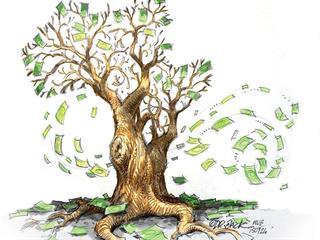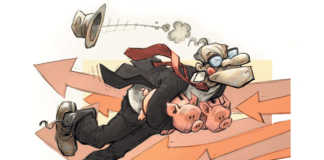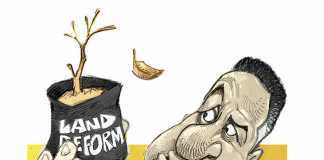
The world is constantly exposed to images of an African continent racked by conflict and poverty. Regularly we hear stories of people risking – and losing – their lives in an attempt to flee to European countries affording a more secure future. Africa has 11 of the 20 fastest-growing economies in the world. It has enormous resources and almost half of the planet’s uncultivated land suitable for growing food crops. Why, then, are so many Africans desperate to leave?
The answer, in part, lies in the fact that the vast wealth of Africa is frequently not translated into development. It often benefits only a few, or worse, is squandered altogether. Last year, illicit outflows from Africa totalled $69 billion (R860 billion). To achieve development, we need much more than just resources.
Beyond money
Certainly, money can address some of the deficits that trap millions of people, rural dwellers in particular, in poverty. These people need infrastructure, starting with roads leading to schools and markets. They need electrification, water, sanitation systems, education, health care, decent wages and access to finance. But there are many factors necessary for development that money cannot buy, such as leadership, good governance, commitment to the rule of law, and an enabling environment to attract investment.
There is also the sense of social responsibility to pay fair wages, create decent employment and pay taxes. The Third International Conference on Financing for Development (FfD), which took place from 13 July to 16 July in Addis Ababa, Ethiopia, is one leg of the route that global leaders have charted toward a new consensus to eliminate extreme poverty and hunger, among other aims.
Ahead lies the finalisation of the Post-2015 Agenda and Sustainable Development Goals, and a new global agreement on climate change. These goals are necessary for our collective future, but without a solid consensus, they will remain mere wishes.
Investing in people
Africa is rich. Its extractive industries have provided revenues in the hundreds of billions of dollars. Yet, some of these resource-rich countries have amongst the highest child mortality rates, and a dozen have in excess of 100 child deaths for every 1 000 live births.
Working towards a solution begins with leadership, accountability and commitment. Three- quarters of the world’s chronically hungry people live in rural areas, and are dependent mainly on agriculture for their livelihoods. Investment in rural development is key to delivering various development objectives, including adequate food, clean air, fresh water and biodiversity.
Change must start from within. The primary key to a sustainable future free of poverty and hunger is people – not money, and not monetary aid. Smallholder farmers and rural entrepreneurs could contribute much more to food production, job creation, national economic growth and preserving natural resources. Unfortunately, these very people often lack the tools to do so, and many often go hungry themselves.
Internationally, growth in the agricultural sector has been estimated to be at least three times more effective in reducing poverty than growth in other areas. In sub-Saharan Africa, it is 11 times more effective. The International Fund for Agricultural Development is the only international financial institution in the UN and is a committed partner in rural transformation. Like similar institutions, it offers support and is investing and sharing knowledge and best practices. But no donor institution can not transform a country unless that country is willing to transform itself.
Ethiopia, a country once synonymous with famine, is now amongst Africa’s fastest-growing economies. Investment in rural infrastructure and agricultural transformation has done what no amount of aid could have. It is Africa’s number one exporter of honey and has the second-largest horticultural industry on the continent.
Not all commitments are measured in dollars. Yes, we need major resources, but we also need the commitment of responsible governors, legislators, investors, businesspeople and partners to ensure investments are just and inclusive. The FfD provides a chance to not just count the money, but to ensure the money counts.
Email Katie Taft at [email protected].













